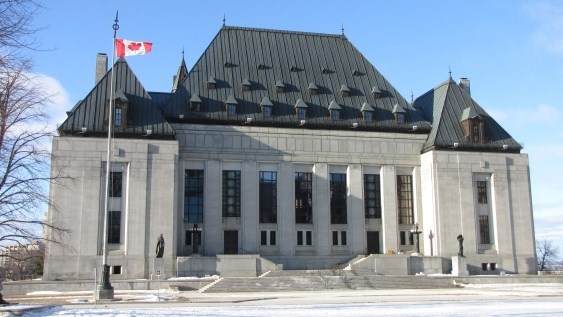I suspect that, following the most recent Supreme Court of Canada decision, a law legalizing physician-assisted death is a done deal in this country.
The court granted the new Liberal federal government a four-month extension to come up with legislation effectively making that practice no longer a crime.
And, as such, it will bring about one of the biggest cultural changes we have seen in our country since Dr. Henry Morgentaler finally won his decades-long battle and abortion became a legal right back in 1988.
Both of these historic shifts in our country’s ethical perspective came about with the aid of the federal Charter of Rights and Freedoms. Ironically, while it was Pierre Trudeau’s Liberals that brought in that piece of legislation, his government actively upheld the law that made Morgentaler’s work illegal.
That was until the courts, considering the Charter, finally weighed in.
But like the issue of doctor-assisted death, the general public was way ahead of the government and the courts of that day. In Quebec in particular, where Morgentaler was repeatedly charged and tried for providing abortions, in spite of the very clear prohibition under federal criminal law, successive juries chose to acquit him rather than find him guilty.
It led to the extraordinary situation of higher courts overturning jury decisions. But in the end, the Quebec government simply threw up its hands and declared that, in spite of the law, abortions could take place in free-standing clinics.
Quebec, having thrown off the yoke of Premier Maurice Duplessis and the Catholic church back in the ’60s in its “Quiet Revolution,” has become among the most socially progressive jurisdictions in the country. While cases were making their way up to the Supreme Court of Canada, Quebec legislators spent years considering the issue of physician-assisted death.
And while we awaited a response from Stephen Harper’s Tories to follow the Supreme Court’s demand to rewrite the law and legalize that practice, Quebec passed its own legislation in December. (There has been at least one sanctioned death in that province since.)
This issue, which ultimately can touch us all either personally or through a family member, had its most recent history more than a quarter of a century ago in the case of Sue Rodriguez.
She was a Victoria resident suffering with the fatal neurodegenerative disease ALS. Her case ended up in the Supreme Court of Canada but led to a split decision of 5-4 against her in 1993. She would die a few months later, it was suspected, with the assistance of an anonymous physician.
It would be another 20 years before we finally saw a victory on the issue. It was where the case of another woman, Gloria Taylor also suffering with ALS, along with four other plaintiffs, all represented by the B.C. Civil Liberties Association (BCCLA) and its lead litigator Grace Pastine, was brought before the Supreme Court of Canada. And this time they won.
That was almost a year ago, and the court ordered the Tories to come up with a new law within 12 months.
Among the Tories’ first acts under Justice Minister Peter MacKay was to set up a panel of three doctors to consider the matter. As evidence that the Tories were simply dragging their feet, the BCCLA pointed out two of the three doctors had previously testified in court cases against doctor-assisted deaths. It seemed unlikely Harper’s crew would do anything before the October election, which proved accurate.
As for Justin Trudeau’s Liberals, they are on the record supporting legalization and one can assume they will meet the extended deadline.
Meanwhile, the court granted an exemption to the government of Quebec, allowing them to carry on under their legislation. They also, in an extraordinary move, granted an exemption to individuals who, in the meantime, could meet the criteria set out in the court’s original ruling to seek a superior court judge’s permission for a doctor-assisted death.
As Pastine notes, the technical legislative task before the Liberals “is very simple.” As for the politics, well, they did promise, and the most recent poll I could find shows that 77 per cent of Canadians, including all ages and political persuasions, would welcome this most profound change.
agarr@vancourier.com
@allengarr



